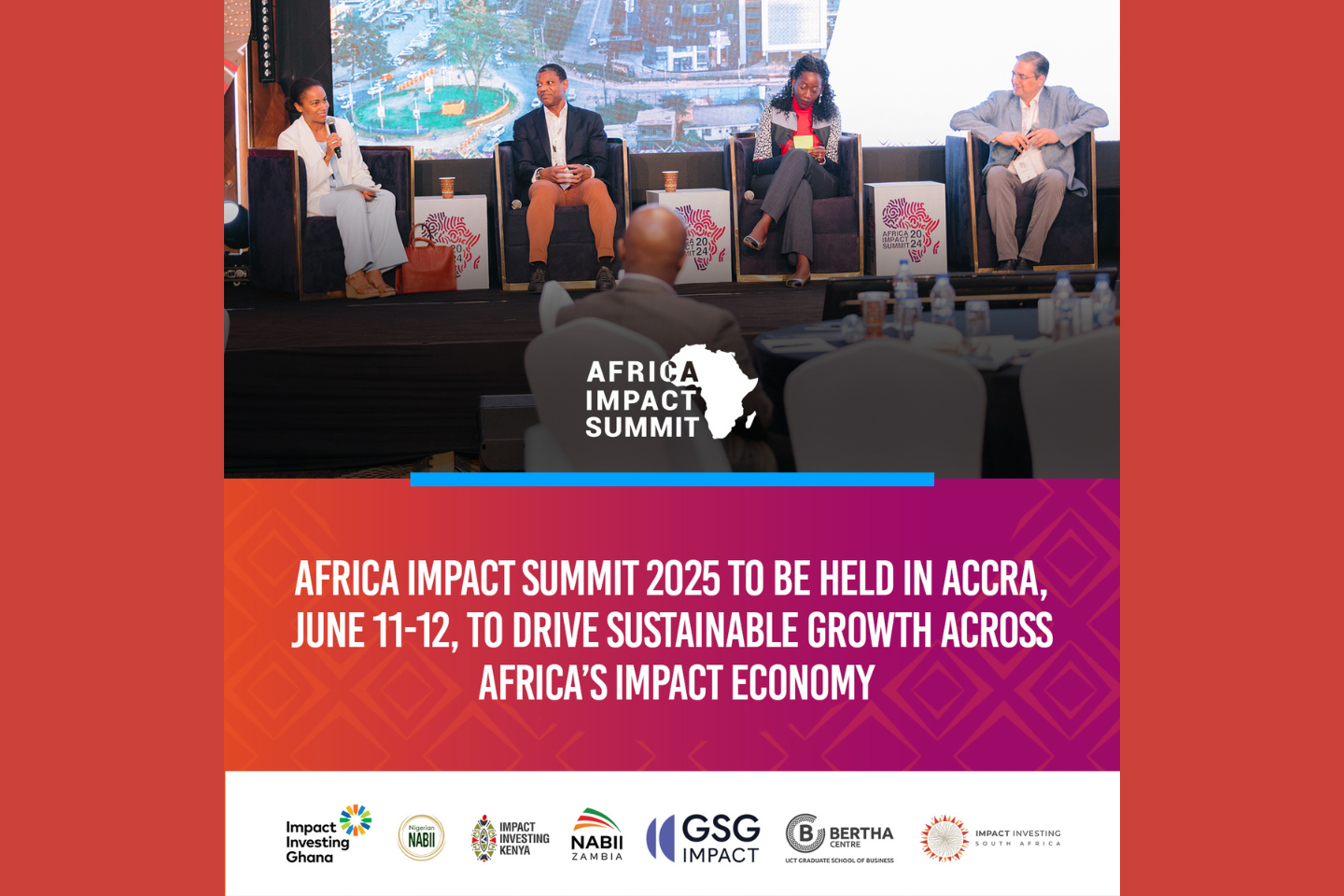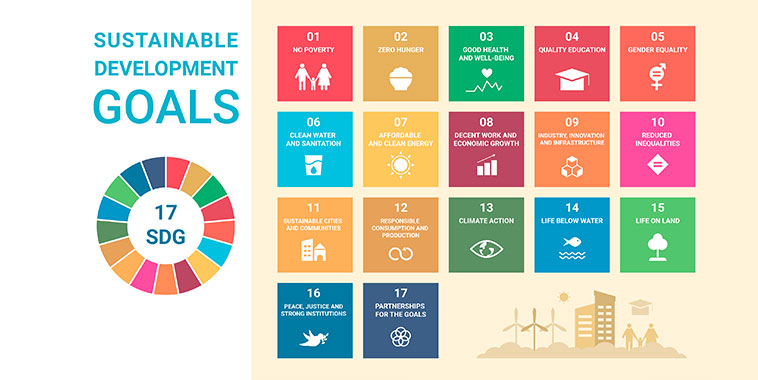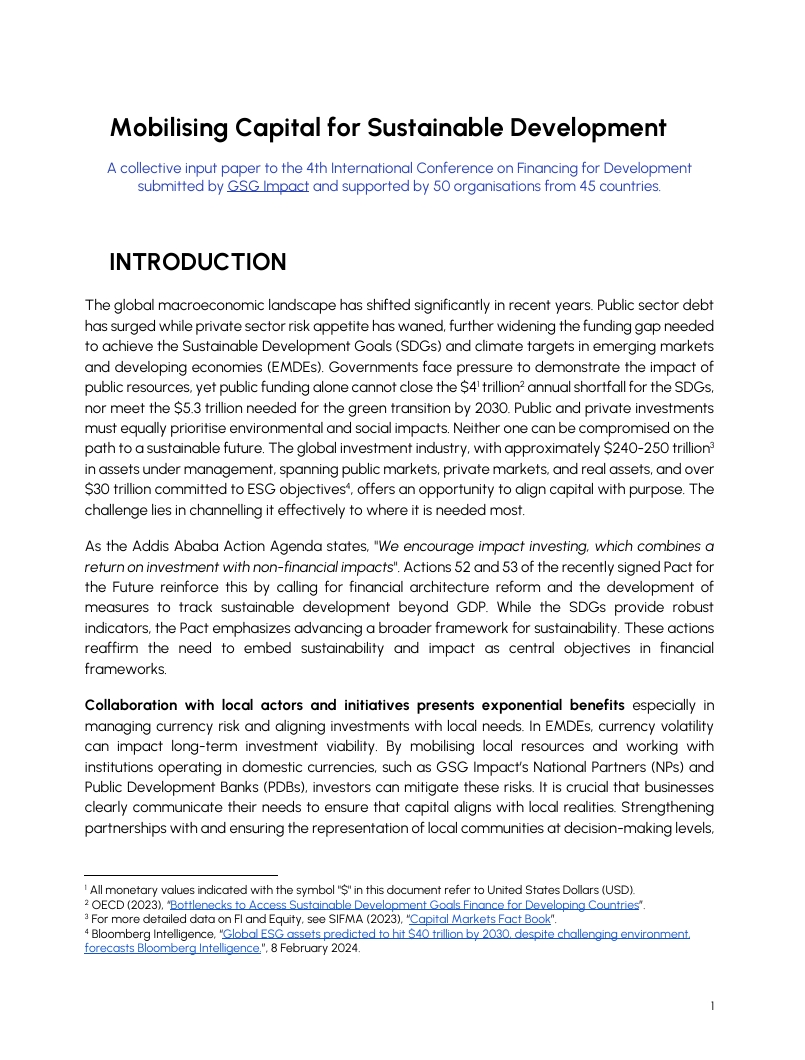
Which Tech Sectors Align to the SDGs?
The UN Sustainable Development Goals (SDGs) offer a comprehensive framework for addressing global challenges such as poverty, inequality, and climate change.
Initially developed as a framework for states and policy makers, measuring the impact of investments aligned with the SDGs has become more common among corporates and institutional investors, but remains challenging for most investors and start-ups.

Impact measurement is crucial to track progress and ensure that resources are used effectively, but the process can be complex and time-consuming. Moreover, the lack of literacy and awareness about SDGs among stakeholders exacerbates the issue. Fortunately however, the tide is turning with regard to private sector engagement and accountability to the SDGs. As highlighted in findings from the Consortium on SDG-driven Tech Innovation Ecosystems (expected Q2 2023) which GSG Impact co-leads together with National Partners from Israel, Portugal, France, and Italy, there is a growing trend of private sector actors using impact measurement/assessment frameworks. In France for example, 71% of companies have adopted an SDG framework to meet investor expectations and over 50% of institutional investors reported on the SDGs in 2018. Similarly, in Portugal, ~50 major corporations mention the SDGs in their sustainability reports, indicating that these companies incorporate the SDGs when measuring and communicating their impact.
Despite these promising results, the Consortium’s findings also reveal that SDGs are not commonly incorporated into impact measurement and assessment frameworks among most VC investors or startups. While some tools, which GSG Impact profiled in a previous post, are available to help investors and companies align to the SDGs, only a handful reference tech-aligned sectors specifically. This poses a challenge for investors looking to support innovative technologies that can drive SDG progress.
To address this, we have compiled a list of several frameworks and tools that have been developed to clarify which tech applications align with the SDGs.
The following frameworks provide guidance to investors and stakeholders looking specifically to align their tech investments to SDGs:
- SDG Impact: The SDG Impact Standards provide guidance to businesses and investors on embedding sustainability and the SDGs into their management practices. The framework is based on a set of 17 SDG impact statements designed to help investors identify and measure their impact on the SDGs. While the SDG Impact Standards are a comprehensive tool, they do not focus specifically on tech-aligned sectors.
- EU Taxonomy: The EU Taxonomy is a classification system that identifies environmentally sustainable economic activities. It is designed to help investors identify which investments are aligned with the EU’s climate goals. However, the taxonomy does not include agtech, water tech, or social applications of technology such as edtech, fintech, healthtech, and govtech.
- Planetech Challenge Areas: The Planetech Challenge Areas support organisations in discovering how their technologies can address climate change challenges while gaining economic value. While this framework provides valuable guidance on how technologies can contribute to climate change mitigation, it does not link tech applications to the SDGs.
- Toniic SDG Impact Theme Framework: The Toniic SDG Impact Theme Framework is a taxonomy that matches members with others working on the same impact themes. It is tied to the SDGs and guides investors in aligning their investments with specific impact themes. However, this framework does not reference all possible software applications.
- SDI Taxonomy: The SDI Taxonomy focuses on companies’ product and service-related contributions to the SDGs and is based on financial metrics such as revenues. While this framework provides a clear way to measure the impact of investments, it does not provide guidance on specific tech applications that can drive SDG progress.
Even though the above tools and frameworks are not perfect solutions, they provide valuable guidance to investors and stakeholders looking to align their investments with the SDGs. Driving progress towards achieving the SDGs in the private sector, they offer a useful starting point for investors looking to support SDG-driven innovative technologies.








